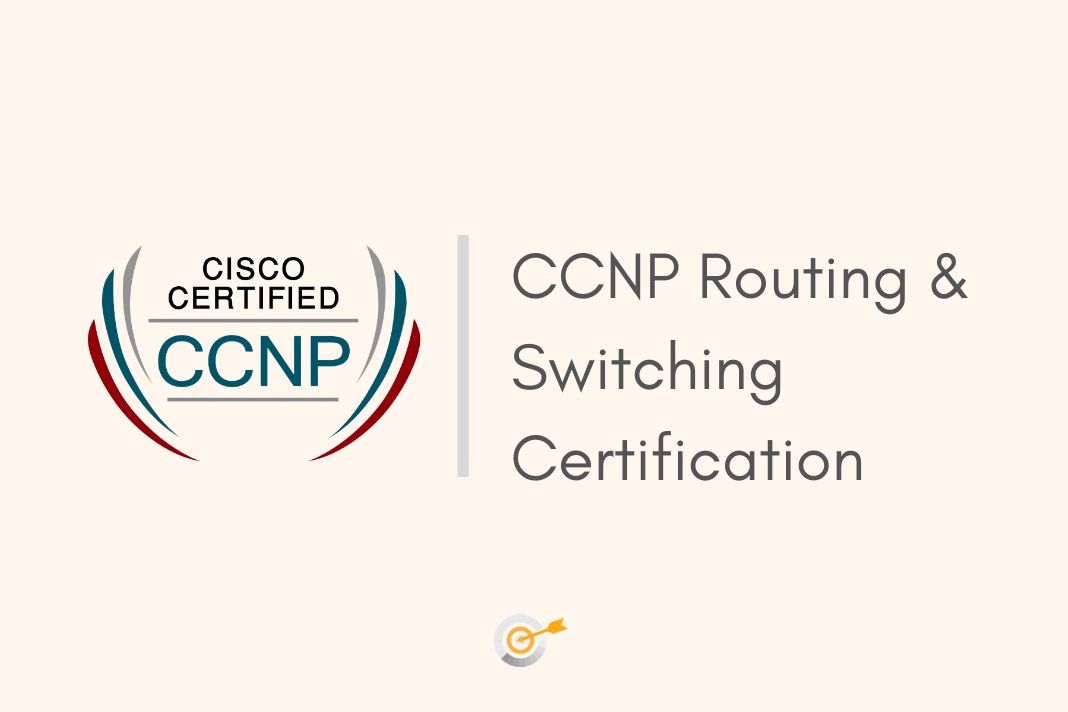Overview of CCNP Routing and Switching Certification
It’s worth mentioning that the concept of standard Cisco certification was introduced in 1998. It was when Cisco first introduced beginner-level and professional networking certifications. The basic idea behind the certifications was to complement the Cisco Certified Internetwork Expert (CCIE) program. Since then, Cisco has expanded its certifications and currently offers quite a few certifications for professionals of all experience levels.
Companies are looking for more sound and skilled IT professionals. How will you become the one? Cisco has been the leader in providing the globally accrued certifications; CCNP Routing and Switching certification is one such certification for today’s network professionals, looking for tremendous growth.
| Also Read: Top Paying IT Certifications |
Is This Certification Right for You?
Cisco Certified Network Professional (CCNP) Routing and Switching certification validate the ability to plan, implement, verify and troubleshoot local and wide-area enterprise networks and work collaboratively with specialists on advanced security, voice, wireless and video solutions.
The CCNP certification is intended for professionals seeking specialized training programs in implementing, maintaining, and planning Cisco’s wide range of high-end network solution products. The CCNP certification curriculum consists of many different courses, which cover the basics of IT networking. Some of these include:
- Cisco remote access
- Cisco advanced routing
- Cisco multilayer switching
- Converged network optimization
- Scalable internet works
Professionals who choose this certification program are trained to troubleshoot, install, and maintain both wide area networks (WAN) and local area networks (LAN) for systems between 100 and 500 nodes. In this certification program, students also gain expertise in a wide range of network features and protocols, including Route Redistribution, Access Lists, Ethernet, and AppleTalk.
CCNP certification holds a huge potential to enhance your market value and land you a job quickly. It is an extensive certification course. Although CCNP certification does not match the importance of experience, but, the recruiters see it as an authentic proof of your capability.
CCNP Exam has a rigorous course and needs in-depth knowledge & training. Various courses are available in the market that provides you comprehensive courses and instructor-led classes to help you pass the exam.
Recommended Articles:
A Step by Step Guide on How to Get CCA-N: Citrix Certified Associate – Networking Certification
What are the Eligibility Criteria and the Certification Process for a CCNP Routing and Switching certification?
To take the CCNP certification exam, you are required to have a CCNA certification. The CCNP certification consists of 3 exams, namely:
- 300-101 ROUTE Implementing Cisco IP Routing (ROUTE)
- 300-115 SWITCH Implementing Cisco IP Switched Networks (SWITCH)
- 300-135 TSHOOT Troubleshooting and Maintaining Cisco IP Networks (TSHOOT)
During the certification course, the primary focus is preparing professionals for the CCNP examination. A series of practice exams are conducted to test the student’s understanding, and knowledge of Cisco’s IP switched network and IP routing technologies. These tests also measure the student’s ability to troubleshoot, test, and maintain various techniques. The CCNP certification is appropriate for those with at least one year of networking experience who are ready to advance their skills and work independently on complex network solutions. Those who achieve CCNP have demonstrated the skills required in enterprise roles such as network technician, support engineer, systems engineer, or network engineer.
The prerequisites include Valid Cisco CCNA Routing and Switching certification, or any Cisco CCIE certification can act as a prerequisite. Cisco professional level certifications (CCNP, CCNP Wireless, CCDP, CCSP, CCNP Voice, and CCIP) are valid for three years. To recertify, pass ONE of the following before the certification expiration date:
- Pass any current 642-XXX Professional-level exam, or
- Pass any current CCIE Written Exam,
- Pass the current CCDE Written Exam or CCDE Practical Exam, or
- Pass the Cisco Certified Architect (CCAr) interview AND the CCAr board review to extend lower certifications.
CCNP Routing and Switching is an in-depth study of routing and switching. While the CCNA curriculum is mostly theoretical basics, CCNP offers you hands-on simulation and certifies your capabilities. As the exam has 3 different modules, the course is also to be taken up module wise Route, Switch and Troubleshoot.
- The CCNP course needs you to grasp the core of advanced routing and switching.
- You may opt for a classroom course or an instructor-led course.
- The course gives you practical experience with the real equipment.
What are the Benefits of the CCNP Course?
Cisco Certified Network Professionals can:
- Implement and configure an EIGRP based solution.
- Create a multi-area OSPF Network and configure OSPF routing.
- Implement an eBGP based solution and configure eBGP routing.
- Setup an IPv6 based solution and document implementation results.
- Implement and configure an IPv4 or IPv6 redistribution solution.
- Create Layer 3 Path Control Solutions and broadband connections.
- Determine the necessary resources and implement a VLAN-based solution.
- Plan and implement a Security Extension of Layer 2 solutions.
- Design and configure Switch based Layer 3 services.
- Implement advanced VoIP, video, and wireless support solutions.
- Implement High Availability and confirm using show & debug commands.
- Maintain the network and develop a plan to monitor performance.
- Troubleshoot Multi-Protocol systems, such as EIGRP, NAT, and OSPF.
What are the Job Roles Available after this Certification?
The CCNP certification suits IT professionals who want to go further with their career and can include the following:
- Third Line Support
- Network Engineer
- Network Analyst
- IT Team Leader
- Systems Engineer
- Network Specialist
- Network professionals
- Network/system administrators
- Network engineers
- Network technicians
Investing in CCNP certification is profitable both for you and your employer. Your employer also needs to showcase a team of certified professionals to get the best projects. The average salary for these professionals varies between $90000 to $120000, depending on the role that an individual is employed in.
Where to Get Online Resources for this Certification?
Several websites like Udemy, Simplilearn, Global Knowledge, Plural Sigh offer not only practice exams and study guides, but the required resources and guidance for you to attempt the exam for the certification itself.





